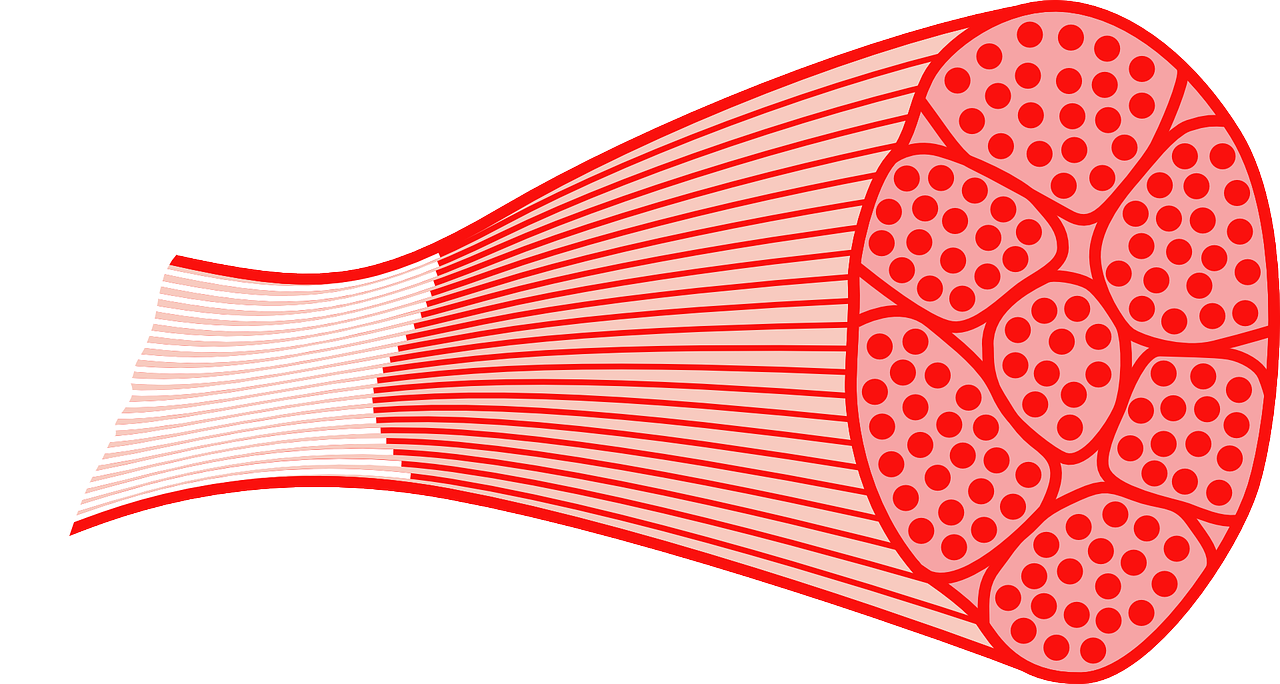Your cart is currently empty!

The Engine of Growth: Understanding Muscle Protein Synthesis
The Biology of Mass
Muscle protein synthesis (MPS) is the fundamental process by which our bodies repair and build muscle tissue. It’s a continuous cycle of breaking down existing proteins (muscle protein breakdown or MPB) and creating new ones. When MPS exceeds MPB, you experience muscle growth, or hypertrophy. Understanding this process is key to optimizing training, nutrition, and recovery for anyone seeking to build strength and muscle mass.
What Triggers Muscle Protein Synthesis?
MPS isn’t a passive process; it requires specific stimuli to kick into gear. Three primary triggers are crucial:
- Mechanical Tension: This refers to the stress placed on muscles during resistance training. Lifting weights, or performing exercises that challenge your muscles, creates microscopic tears in muscle fibers. This damage signals the body to initiate repair and rebuilding, ultimately leading to stronger, larger muscles.
- Metabolic Stress: This occurs due to the accumulation of metabolic byproducts during intense exercise, such as lactate, hydrogen ions, and inorganic phosphate. This “burn” you feel during a tough workout plays a role in stimulating growth hormone release and other anabolic factors that promote MPS.
- Hormonal Factors: Hormones like testosterone, growth hormone, and insulin-like growth factor-1 (IGF-1) play vital roles in regulating MPS. Resistance training naturally boosts the production of these hormones, further amplifying the muscle-building process.
Fueling the Engine: Nutritional Requirements for Muscle Protein Synthesis
Nutrition is the fuel for MPS. Without the necessary building blocks, the body can’t effectively repair and build muscle. Key nutritional components include:
- Protein: Protein is the cornerstone of muscle growth. It provides the amino acids, the building blocks of protein, necessary for MPS. Consuming sufficient protein, particularly high-quality sources containing essential amino acids, is critical. The current recommendation for individuals aiming to build muscle is around 1.6-2.2 grams of protein per kilogram of body weight per day. Distributing this protein intake throughout the day, with meals containing at least 20-30 grams of protein, is generally recommended for maximizing MPS.
- Calories: An energy surplus, meaning consuming more calories than you burn, is generally necessary for significant muscle growth. This provides the body with the energy required for the energy-intensive processes of MPS. However, excessive calorie intake can lead to fat gain. A moderate surplus is usually recommended.
- Carbohydrates: Carbohydrates play an indirect role in MPS by providing energy for workouts and stimulating insulin release. Insulin is an anabolic hormone that can enhance protein synthesis and reduce muscle protein breakdown.
- Micronutrients: Vitamins and minerals, while not directly involved in MPS, play crucial supporting roles in various physiological processes related to muscle growth and overall health.
The Biological Symphony: The Process of Muscle Protein Synthesis
MPS is a complex molecular process. Here’s a simplified overview:
- Signaling Pathways: When muscles are subjected to mechanical tension, metabolic stress, or hormonal signals, various signaling pathways are activated within the muscle cells. A key pathway is the mammalian target of rapamycin (mTOR) pathway, which acts as a central regulator of protein synthesis.
- Ribosome Formation: Once mTOR is activated, it triggers the assembly of ribosomes, the protein-making machinery of the cell.
- Translation: Ribosomes then “read” the genetic code (mRNA) and use amino acids to synthesize new proteins. These new proteins are then incorporated into the muscle fibers, leading to muscle growth and repair.

The Results of Muscle Protein Synthesis: Strength and Hypertrophy
The primary result of consistent and effective MPS is muscle hypertrophy – an increase in the size of muscle fibers. This leads to:
- Increased Muscle Strength: Larger muscles are capable of generating greater force, leading to increased strength.
- Improved Athletic Performance: Increased muscle mass and strength can enhance performance in various sports and physical activities.
- Enhanced Metabolism: Muscle tissue is metabolically active, meaning it burns calories even at rest. Increased muscle mass can contribute to a higher resting metabolic rate, which can aid in weight management.
- Improved Body Composition: Building muscle and losing fat can significantly improve body composition, leading to a healthier and more aesthetically pleasing physique with MASS.
Conclusion
Muscle protein synthesis is a crucial process for muscle growth, repair, and overall health. By understanding the triggers, nutritional requirements, and biological mechanisms involved, individuals can optimize their training, diet, and lifestyle to maximize their muscle-building potential. Consistent effort, proper nutrition, and adequate rest are the key ingredients for achieving your muscle-building goals.
References
- American College of Sports Medicine. (2009). Progression models in resistance training for healthy adults. Medicine and science in sports and exercise, 41(4),1 687–708. https://journals.lww.com/acsm-msse/Fulltext/2009/03000/Progression_Models_in_Resistance_Training_for.26.aspx
- Phillips, S. M., & van Loon, L. J. C. (2011). Dietary protein for athletes: from requirements to optimum adaptation. Journal of sports sciences, 29 Suppl2 1, S29–S38. https://pubmed.ncbi.nlm.nih.gov/22129920/